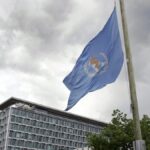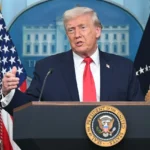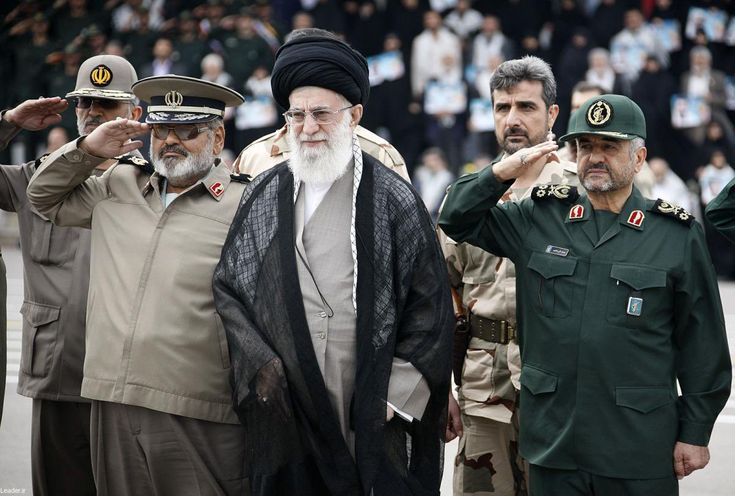Table of Contents
In the tense aftermath of Israel’s sweeping military campaign—Operation Raising Lion—Iran is turning to international diplomacy while simultaneously preparing for continued military tension. Tehran’s Foreign Minister, Ali Bagheri Kani, claimed on Friday that the United States actively opposed Iran’s request for an emergency United Nations Security Council (UNSC) session. The proposed session was intended to address what Iran called illegal Israeli strikes against nuclear facilities protected by international treaties.
This accusation comes amid escalating rhetoric and strategic maneuvering following Israel’s attack on over 100 Iranian targets, including critical military infrastructure and nuclear research centers. According to Iranian officials, several facilities under International Atomic Energy Agency (IAEA) safeguards were among those damaged, raising concerns not only about regional stability but also about the sanctity of international nuclear agreements.

Tehran’s Accusation: The US Blocked a Legal Response
At a press briefing in New York, Foreign Minister Bagheri Kani criticized the United States and its European allies for:
- Blocking Iran’s diplomatic recourse through the UNSC
- Undermining international legal mechanisms, particularly the IAEA
- Failing to condemn the Israeli strikes, which Iran argues were clear violations of international law
“We submitted an urgent request for a Security Council meeting. Instead of upholding the law, the United States actively opposed this. Even when nuclear facilities under international supervision are attacked, silence is their response,” Bagheri Kani said.
Iran also attempted to initiate an emergency meeting of the IAEA Board of Governors, a move supported by several non-aligned nations, though no session has yet been scheduled.

Legal Framework: Protected Nuclear Sites Under Threat
Iran contends that some of the Israeli strikes targeted nuclear facilities governed under the Treaty on the Non-Proliferation of Nuclear Weapons (NPT). These sites, monitored by the IAEA, are considered protected under international humanitarian law, especially during conflicts. Attacking such sites without UNSC authorization or clear proof of military misuse could be interpreted as a violation of international norms.
Israel, however, maintains that the strikes were a preemptive defense measure, citing intelligence that Iran was nearing weaponization of its nuclear program.

West’s Silent Endorsement?
Bagheri Kani’s statements also condemned the muted or supportive reactions of the U.S. and several European states. Some officials in Washington, London, and Paris referred to the strikes as “regrettable but necessary,” language Iran says legitimizes unilateral aggression.
“Even the IAEA, the international guardian of nuclear safety, has remained disturbingly quiet,” said one Iranian diplomat in Vienna. “It sends a message: nuclear law can be suspended when it’s politically convenient.”
Regional Tensions Escalate: US Issues Iraq Security Warning
Amid these developments, the U.S. Embassy in Baghdad issued a security alert citing potential threats to American citizens and businesses in Iraq. This is likely a response to fears that Iranian-aligned militias could launch retaliatory attacks on U.S. assets in the region—a common pattern in periods of high Iranian-Israeli tension.
This alert adds urgency to the diplomatic standoff, suggesting that the fallout from the Israeli strikes could extend beyond Israel and Iran, pulling in American interests and possibly triggering wider proxy conflict.

Strategic Implications: Iran’s Isolation and Options
Iran’s diplomatic isolation appears to be deepening. With limited Western support, few meaningful channels at the UNSC, and no scheduled IAEA meeting, Tehran is left with diminishing options:
- Retaliate directly or through proxies—risking regional escalation
- Withdraw further from the NPT—and possibly exit entirely
- Continue international legal efforts, hoping for wider backing from non-Western states
Bagheri Kani emphasized that Iran would continue to pursue diplomatic options but “cannot rely on institutions that fail to uphold their mandates.”

What Comes Next?
- IAEA Board Pressure: Non-aligned and Global South countries may push for a formal response from the IAEA. The outcome will shape how future strikes on nuclear sites are viewed globally.
- UNSC Fallout: If the US is seen as blocking international forums, it could weaken the perceived neutrality of the UN, especially in the Global South.
- Proxy Threats: The Baghdad alert could foreshadow attacks on U.S. and allied forces across Iraq, Syria, or the Gulf.
Conclusion: A Crisis of Law and Credibility
The fallout from Operation Raising Lion has moved far beyond military conflict. Iran is now trying to recast the strike as not just a regional act of aggression, but a global crisis of international law. Whether this framing gains traction at the UN or among IAEA members remains to be seen. For now, Iran appears caught between a desire for legal redress and the realpolitik of regional deterrence. With limited diplomatic recourse, the potential for renewed asymmetric warfare looms large, and the global nuclear framework faces a credibility test it may not pass.
Follow WorldAffair.org for continuing coverage of the Middle East’s most pressing conflicts and diplomacy updates.
Author Profile
- Syed Tahir Abbas is a Master's student at Southwest University, Chongqing, specializing in international relations and sustainable development. His research focuses on U.S.-China diplomacy, global geopolitics, and the role of education in shaping international policies. Syed has contributed to academic discussions on political dynamics, economic growth, and sustainable energy, aiming to offer fresh insights into global affairs.
Latest entries
 U.S. Foreign PolicyFebruary 2, 2026AI and Grand Strategy: The Case for Restraint – Navigating the Future of American Power
U.S. Foreign PolicyFebruary 2, 2026AI and Grand Strategy: The Case for Restraint – Navigating the Future of American Power National SecurityJanuary 31, 2026Treating China’s Connected Energy Systems as a National Security Risk
National SecurityJanuary 31, 2026Treating China’s Connected Energy Systems as a National Security Risk Global HealthJanuary 29, 2026The Future of the WHO—and How the United States Can Shape It
Global HealthJanuary 29, 2026The Future of the WHO—and How the United States Can Shape It Global TradeJanuary 22, 2026Trump Cancels Tariffs on European Nations Over Greenland Pursuit?
Global TradeJanuary 22, 2026Trump Cancels Tariffs on European Nations Over Greenland Pursuit?


